FM Approved Industrial Fluids
-
The Hazards
Without industrial fluids our world would be very different and our lives more difficult. Industrial fluids—including hydraulic fluids, lubricants, heat transfer fluids and other specialized fluids—stop our trucks, control our jet aircraft, compress our trash, help construct our roads, form hot metal into usable shapes, and help generate and transmit electricity.
Industries or industrial areas where industrial fluids are used extensively include:
- Mining and ore processing
- Wood-product manufacturing and lumber mills
- Steel and aluminum rolling mills
- Metal smelting
- Steam, gas and electric turbine power generation
- Ship-steering rooms
- Paper and pulp processing
Pressurized industrial fluids--such as turbine lubricating and control oils or hydraulic fluid used to power metal forming machines—present a considerable fire hazard. High pressure piping with welded or threaded joints and metal-reinforced tubing is used to conduct industrial fluids at pressures up to 10,000 psi (69 MPa). Fluid released under this kind of pressure typically results in an atomized spray or mist that can easily ignite when it contacts hot surfaces, open flame or an electric arc. The resulting fire is torch-like and very difficult to control, even with automatic sprinkler protection.
FM Global loss statistics have shown the majority of fire loses within power generation facilities, for example, are due to mechanical failures and human error. These failures, involving all types of oil systems, have resulted in numerous oil fires including spray fires, three-dimensional flowing fires, and pool fires. During a 15- year period, FM Global statistics show that fire protection deficiencies for lube-oil systems were a major factor in 17 large turbine building fires that resulted in more than US$400 million in gross losses.
-
Testing Required for FM Approval
Industrial fluids are liquids that are vegetable oils, synthetic fluids, and fluids composed of two or more components in aqueous solutions, emulsions, petroleum-based mineral oils or other types of base stocks that are processed for stability and resilience. The use of an FM Approved industrial fluid can prevent or significantly reduce the extent of damage in a fire.
FM Approval Standard 6930, Flammability Classification of Industrial Fluids, evaluates the ignitibility characteristics of industrial fluids by determining a Spray Flammability Parameter (SFP) for industrial fluids that have a fire point (i.e., the lowest temperature at which a fluid’s vapors will sustain combustion once ignited). For water-based fluids without a fire point, the standard requires the calculation of the Adiabatic Stoichiometric Flame Temperature (ASFT).
The SFP of each candidate fluid is found by first determining the fluid’s chemical heat release rate and critical heat flux. To find the chemical heat release rate, the industrial fluid is heated, pressurized, and sprayed vertically through a propane-air ring burner similar to that used in a gas-fired furnace. This test is conducted under FM Global Research’s Fire Products Collector (FPC). The FPC is used to measure the generation rates of carbon monoxide (CO) and carbon dioxide (CO2), and thereby determine a chemical heat release rate value for the test sample. No other certification agency conducts a similar test to this.
To find a sample’s critical heat flux, a sample is placed in an aluminum dish surrounded by electric radiant heaters, providing a radiant heat flux at the surface of the fluid. The resulting vapors produced in this test are ignited by a pilot flame. Three different values of radiant heat flux are applied to the sample, and the time of exposure required for sustained ignition of the vapor is recorded for each.
The chemical heat release rate, critical heat flux, and other factors are used to calculate the sample’s SFP. An industrial fluid with an SFP of 5 x 104 or less qualifies as FM Approved. Samples with an SFP greater than 5 x 104, but no more than 10 x 104, will be listed as Specification Tested. Fluids with an SFP above 10 x 104 will not be listed. -
Benefits and Availability
FM Approved industrial fluids represent a low fire hazard and do not require additional automatic sprinkler protection. Specification Tested fluids are less ignitable than mineral oil fluids but may still stabilize a spray flame and may require sprinkler protection. Approved industrial fluids and Specification Tested fluids are listed in the Approval Guide and make it easy for FM Global clients and other end users to select an industrial fluid to meet their needs.
FM Approval value? The FM Approved certification program is an investment that demonstrates a manufacturer’s confidence in their products. While FM Approval testing is considered among the most rigorous in the world it is also a quality indicator that will help differentiate a product from the competition.
FM Approvals truly partners with its customers, providing insights that can strengthen product design and by providing ongoing support. FM Approved products are not only listed in the online Approval Guide but, just as importantly, FM Approved products are specified and accepted by building owners, designers and code authorities, and regularly recommended to FM Global insureds in nearly 200 countries by 1,800 FM Global field engineers.
-
Success Stories
Fire-Resistant Fluid Leads to Substantial Savings
A high-production independent forge shop relies heavily upon fluid power to produce automotive and light truck forgings. When the parts are forged they are ejected from the die by hydraulic knock-out pins and transferred from workstation to workstation by hydraulic conveyors. Since the forgings are 1500°F to 1800°F, a fire resistant hydraulic fluid is necessary. For years a water-glycol fluid had been used in these systems with an average pump life of 600 to 800 hours. Analysis indicated the pump failures were due to inadequate lubrication. An FM Approved manufacturer of specialty lubricants reviewed the application and recommended an FM Approved non-water containing fire resistant hydraulic fluid. The fluid performed well, and the remaining power units were converted to the fire resistant fluid. The company reports a substantial saving in terms of replacement parts, labor and downtime because pump life has more than doubled.

